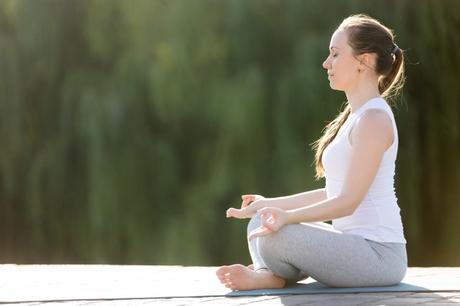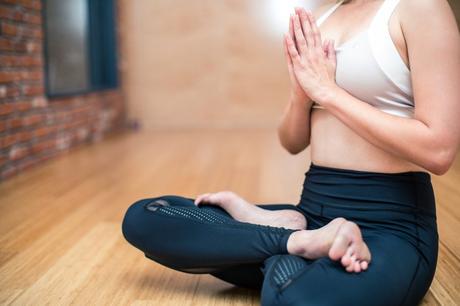Over recent years, mindfulness and meditation have become popular. Unfortunately, most people can't quite understand and define meditation and its purpose.
This guide tries help everyone appreciate meditation and what it's good for. Meditation heightens awareness and offers relaxation time in this stressful world where our senses are constantly dulled. It's no secret meditation has an unmatchable potential that exceeds relieving stress.
Meditation definition
Psychology views mediation as a class of medical training practices to help practitioners familiarize themselves with mental processes.
According to the book " The Heartfulness Way ", for Buddhism, Meditation is one of the three core practices for the attainment of Nirvana and the purification of mind.
While for Christianity, it explains meditation as a type of prayer that helps in scrutinizing religious themes or creates a sense of union with God.
In general, meditation is a mental exercise involving awareness, focus, and relaxation. Meditation has great benefits to your mind as much as physical exercise nourishes the body. Usually, meditation is done individually, seated still with closed eyes. It is practiced in either of the following modes:
Awareness - remaining undistracted, present and without engaging with either observing or focusing.
Concentration - focusing all attention on one object either internal or external.
Observation - paying full attention to what's major in your experience in the current moment. Without allowing your attention to linger or stop on a particular thing.
>>> Read More: 7 Main Types of Meditation - Which One is Best for You?
Nowadays, more people practice meditation not only to combat stressful lifestyles but also for health benefit reasons. Its popularity continues to skyrocket as more people learn and understand what it entails.
Growing Research studies on ever-increasing practice, continue to strongly link meditation to improved mental and physical health.
- Meditation lowers heart rate and reduces high blood pressure. This helps in alleviating the unnecessary pressure on your arteries and heart.
- Meditation helps to fight depression. it increases the creation of dopamine and serotonin that control mood and behavior. Low levels of serotonin have been attributed to causing depression. On the other hand, meditation decreases the production of cortisol that evoke feelings of anxiety, nervousness and unsettled thoughts.
- Meditation improves the immune system. Cortisol can suppress your immune system. Meditation helps decrease cortisol. Moreover, Our general wellbeing substantially improves with reduced stress levels. Ultimately boosting the immune system.
- Meditation relax muscle. Stress causes muscle tension. Muscle tension can result in other problems including spinal issues, vertebral displacement and limited mobility in the body.
Psychological benefits
-
Meditation improves emotional stability.
This is majorly contributed by reduced stress levels. With less stress, we are naturally less defensive, less reactive and effortlessly calm. - Meditation improves creativity and the capacity to learn. Meditating stimulates the pre-frontal cortex. This part of the brain is responsible for focus, problem-solving, concentration and other vital functions.
- Meditation intensifies a sense of self affirmation. Meditating regularly makes you aware of the things you like, dislike and are passionate about. It also gives clarity on what is really important in your life. Eventually, the deeper sense of satisfaction and purpose gives life greater meaning.
- Meditation develops and improves sociability. Anxiety, nervousness, or feeling down, plays a huge role in limiting us socially. Meditation improves our ability to put ourselves out there and seek social connections with others.
- Meditation increases compassion and empathy. This is by increasing a sense of connection with yourself and others. Meditating will continually improve your ability to take into account the feelings and the needs of others.
Spiritual benefits of meditation
It's important to know that anybody can practice meditation regardless of their religion or faith.
- Meditation has been seen to bring out a person's true transformation. By meditating you learn more about yourself which naturally leads to self-discovery and self-love.
- While in a meditative state you are in a space of calmness, vastness, and joy. This energy you emit to your environment, therefore, bringing harmony in the world.
- Meditating encourages an effortless self-transition through infinite self-recognition.
Does meditation really work?
The question on everyone's mind is if meditation actually works.
Are the benefits of meditating real?
It will only take a few minutes out of your day to experience and attest to the benefits of meditation. Keep in mind that you must meditate regularly to enrich your life and experience its benefits.

Connecting with the here and the now is the core of meditating. Meditating is a skill that can be mastered by learning and practicing. Like any other skill, you can only perfect how to meditate by building it to become a habit. To get full acquainted and comfortable with meditating you need to practice consistently.
Tips for beginners before you start
Attitude - cultivate a loving attitude when you meditate. Assess the feelings and thoughts arising when you meditate with a friendly attitude. Instead of being harsh be more friendly.
Be pure on your motivation - start your meditation with a clear motivation. Your reasons to meditate are subjective and often different from those of others. Have a precise idea as to why you want to meditate and what you want from your sessions.
Meditation Posture - forget the stereotypical meditating posture. You can meditate outside or inside and can sit on whatever object that works for you. As a beginner familiarizing yourself with the practice, it's easier to meditate while sitting on an upright chair.
How long to meditate - the length of your meditation session relies on your preferences and your life circumstances. The truth is, better meditation is all about consistency and not the duration. When starting out, a 10-minute session is recommended. There is no harm with starting with a 3 or 5-minute meditation session.
When is the best time to meditate & how often should you meditate - it's recommended to meditate first thing in the morning every day. You can still meditate in the afternoon or evening depending on the time that suits your schedule. If you keep on forgetting when to meditate remind yourself by setting a reminder or alarm.
What to wear - there is no particular dressing for meditating. You can wear anything you like as long as you are relaxed and comfortable.
Guide to start meditate for beginners
There are numerous meditation techniques suitable for both advanced practitioners as well as beginners. For beginners, it's always a good idea to begin and learn the following steps slowly:
- Find a quiet and comfortable place to settle. Sit on a cushion, chair or bench.
- Make a decision on the ideal duration you are devoting to meditate. Meditating for even a few minutes each day is a great place to start. Remember consistency is vital.
- Take notice of your posture. Position yourself in a manner that allows you back to stay straight.
- Set aside your industrious thoughts and breathe. Take into account your feelings of being present in the now.
- Take note of your mental concerns and physical tensions. Accept all of them with kindness, invite them to relax. Then release them.
- Concentrate on your breathing process. You don't need to analyze your breathing but just feel it in your belly. Be aware of when you breathe in and breathe out.
- Practice to gently but firmly bring back your mind to the breath (present moment) when you notice your thoughts have begun wandering. This is mindfulness.
- End your meditation session by stretching, relaxing and enjoying a moment of gratefulness.
Beginner Meditation Tools
Meditation tools are treasured items to achieve inner peace and realizing our deeper nature. The right meditation tools can have a huge impact on your spiritual, happiness and health development. The following tools are really helpful when meditating:
A good meditation space - most people need a peaceful, quiet and less stressful space to meditate. If you can a meditation room or corner in your home provides a perfect zen escape. Store and display all your meditation items in your dedicated spot.
Comfy seating - these include meditation cushion to assist you in remaining comfortably in proper alignment as you meditate.
Tibetan singing bowl - these are powerful meditation tools that especially assist you in slipping into a meditation mood.
Mala - also known as mala beads, mantra beads or meditation beads are important in directing your focus on breathing. You can count your mantra or breathes using the beads. They are worn as bracelets or necklaces.
A good meditation book and meditation apps - there are numerous great meditation books and apps. These are essential particularly when you are new to meditation and you have no idea how to start.
Meditation music - it stimulates relaxation and provides a great ambiance to focus on your meditation.
Aromatherapy - some smells can stimulate relaxation, revitalize and energize. Essential oils, candles, and incense are great meditation tools.
We have some recommendations of the 9 Best Aromatherapy Diffuser Brands For A Soothing Home Environment.

Meditating with crystals is a complex practice. Certain crystals are viewed to have their distinct powers. In particular, the rose quartz is said to attract love and possess calming powers while the clear quartz is believed to have healing powers.
Depending on your intention for meditating, place the crystal in your meditation space. Meditate on the crystal while imaging the results you desire have already come to pass. Let your meditation process feel as natural as possible despite using a crystal of your preference.
In conclusion, it's always an easy resolution to start something new. However, the tricky part comes in when you have to be consistent with your new habit. It's common for the novelty to wear off and the early enthusiasm to fade. This happens quite often to meditation practitioners. Quite often the practice might feel as being repetitive.
It's vital to remember that it takes time, discipline and perseverance to reap the benefits of meditation. Meditation will help you learn to step back and observe your thoughts without any bias or judgment. The more you consistently meditate the more you understand how your mind feels and thinks.
And finally, you can take the right steps to live a happier and healthy life with increased compassion, calm, contentment and clarity.

